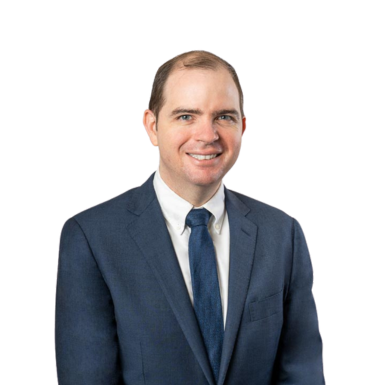The Medical Board of Australia has announced the implementation of a new Professional Performance Framework that will apply to registered medical practitioners in Australia.
The Board proposes to introduce performance processes for practitioners with a record of multiple substantiated complaints against their registration, as well as for practitioners over 70 years of age.
Australia does not have a formal process of revalidation or recertification of medical practitioners, unlike that which exists in other countries, including the UK, Canada and New Zealand. Instead, as part of the annual renewal process with the Medical Board of Australia (Board) and AHPRA, medical practitioners presently provide an annual statement, in which they are required to provide a declaration that they do not have an impairment, details of any complaint made about them to a registration authority or another entity having functions relating to professional services provided by health practitioners or the regulation of health practitioners, and other matters.
Whilst the National Law provides the Medical Board with the power to require a registered health practitioner to undergo a health or performance assessment, such assessments are generally reactionary in nature or in response to particular notifications (or complaints).
Since 2012, the Board has consulted with the medical profession and community about options for introducing a ‘revalidation’ process in Australia. The Board appointed an expert advisory group (‘group’) to consider this issue, who recently recommended an integrated approach to improve public safety and better identify and manage risk by enhancing CPD obligations and other measures to identify medical practitioners who are performing poorly or are at risk of performing poorly so as to assess their performance and support their remediation.
The group also identified that:
- In Australia, a small proportion of doctors are the subject of frequent complaints – a three year study found about 3% of Australia’s medical workforce accounts for nearly half of all complaints;
- While Australian health practitioner regulators currently use a range of strategies to deal with these doctors, more needs to be done to prevent the escalation of further complaints. This will require accessing information about individual poor performance that is held by different agencies;
- It is important to differentiate between complaints made and complaints substantiated. The new framework is directed towards complaints that are substantiated and may pose a risk to patient safety;
- As at March 2017, there were 5,596 medical practitioners in Australia aged 70 years and over registered to practise medicine, with 865 aged 80 years and over;
- There are risks related to practice by professionally isolated practitioners and with health systems and culture.
Importantly, the group advised that the recommended changes should be considered supportive and not punitive in nature.
On 28 November 2017, information was released about a Professional Performance Framework designed by the Board in response to the group’s final report, which is directed to ensuring that all registered medical practitioners practise to an appropriate standard throughout their working lives. The proposed Professional Performance Framework is designed to address the following specific risks:
- practitioners with multiple complaints and/or notifications – by requiring practitioners with three or more substantiated notifications and/or complaints over a five-year period to undertake additional assessments to investigate the potential risks to the public, and interrogating the notifications data about doctors with multiple notifications to identify patterns of potential underperformance and poor performance; and
- an age related risk of poor performance – by requiring doctors at 70 years of age, and every three (3) years thereafter, to undertake a confidential health check (including cognitive screening), and a formal managed performance review process with feedback, credited to the practitioner’s CPD.
The framework is innovative as historically risks from performance deficits have typically been managed reactively after a complaint or notification.
The Board accepted the recommendations of the group, including to not adopt the term ‘revalidation’ that is used in other countries as it does not reflect the Board’s integrated approach.
Information about the Professional Performance Framework can be found on AHPRA’s website.
In summary, the Board’s Professional Performance Framework consists of the following ‘five pillars’:
- Strengthened Continuing Professional Development that applies to all doctors – this includes basing CPD on a personal professional development plan, and doing at least 50 hours of CPD per year that incorporates a mixture of reviewing performance, measuring outcomes, and educational activities;
- Active assurance of safe practice – this includes the Board identifying practitioners at risk of poor performance and managing that risk. The Board is proposing to require practitioners who provide clinical care to have peer review and health checks at 70 years of age and three (3) yearly thereafter, the outcome of which will not be reported to the Board unless there is serious risk to patients. The Board is also proposing to require professionally isolated doctors to do more CPD that involves peer review;
- Strengthened assessment and management of medical practitioners with multiple substantiated complaints – the Board will require these practitioners to participate in formal peer review of performance;
- Guidance to support practitioners – the Board will continue to develop and publish clear, relevant and contemporary professional standards to support good medical practice, including revision to the Good Medical Practice: A Code of Conduct for Doctors in Australia, and the development of existing and new registration standards;
- Collaborations to foster a positive culture of medicine – this is to be achieved through promoting a culture of medicine that is focussed on patient safety, working in partnership with the medical profession, encouraging doctors to commit to reflective practice and lifelong learning, to take care of their own health and wellbeing, and to support their colleagues.
Significant work will be required before the Professional Performance Framework is fully implemented, during which time the Board is committed to working in partnership with the medical profession.
It is evident that the Professional Performance Framework is designed to ensure patient safety and encourage doctors to provide high-quality health care. However, given the complexity involved with the implementation of the different elements of the Framework, including required legal and clinical advice, and which will involve three phases of its introduction that apply over the next 12 months, by 2020, and in the longer term, we will need to wait and see whether it is able to achieve the desired outcome. The breadth of the proposed development of ‘memoranda of understanding’ with relevant organisations to assist in information sharing about complaints or potential risks about individual practitioners is presently unclear. However, what is clear is that the framework is designed to address practitioners with multiple substantiated complaints.
An approach which is collaborative in nature and specifically encourages input from medical practitioners at an early stage represents a significant change. Meridian Lawyers has assisted medical practitioners frustrated by lengthy delays in investigations undertaken by AHPRA and the Board, where on occasion voluntary self-improvement measures that have been undertaken by practitioners in the interim are not sufficient to overcome the Board’s concerns. A culture shift from one that is focussed on fault to one that is focussed on collaboration and improvement can only assist the medical profession and the public as a whole.
This article was written by Principal Daniel Davison and Senior Associate Sarah Twinn. Please contact us if you have any questions or would like more information.
Disclaimer: This information is current as of December 2017. These articles do not constitute legal advice and do not give rise to any solicitor/client relationship between Meridian Lawyers and the reader. Professional legal advice should be sought before acting or relying upon the content of these articles.




 Meet our Team
Meet our Team View our Insights
View our Insights